Counting skills Geometry Worksheets for Ages 7-8
8 filtered results
-
From - To
Enhance your child's learning with our engaging Counting Skills Geometry Worksheets, designed specifically for ages 7-8. These worksheets seamlessly blend counting with geometric concepts, fostering a solid understanding of shapes and spatial awareness. Children will practice counting sides, edges, and vertices, all while exploring the fascinating world of geometry. Our fun and colorful activities make learning enjoyable, encouraging kids to develop essential math skills in a creative way. Perfect for reinforcing classroom lessons or as supplementary home practice, these worksheets support early math education and help build confidence in young learners. Dive into geometry and counting today with our interactive resources!
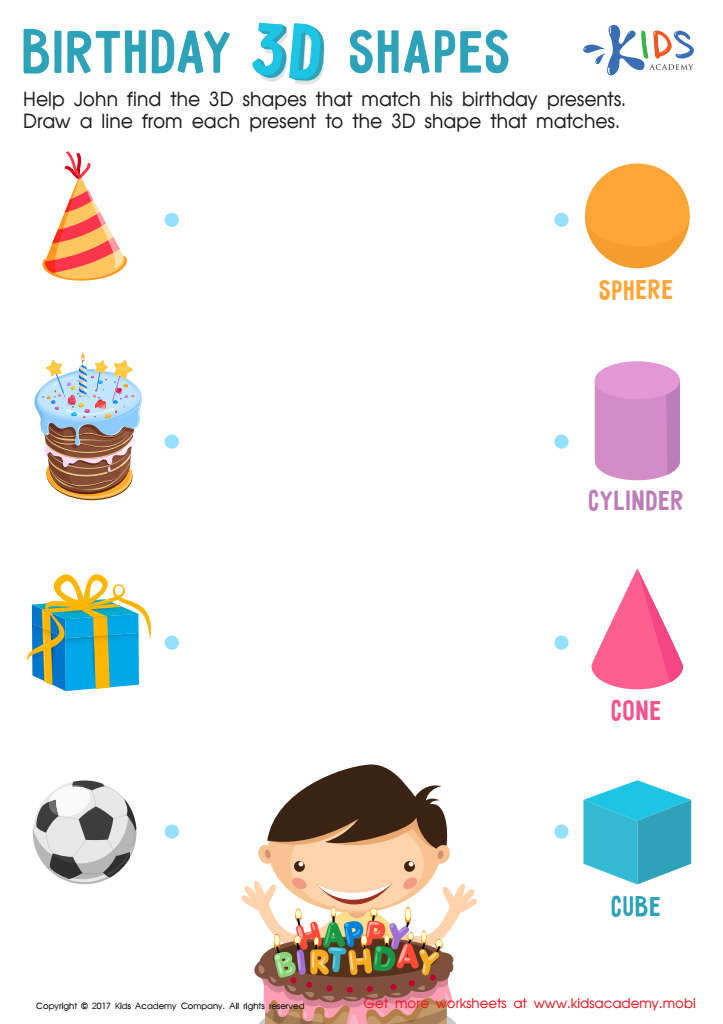

Birthday 3D Shapes Worksheet
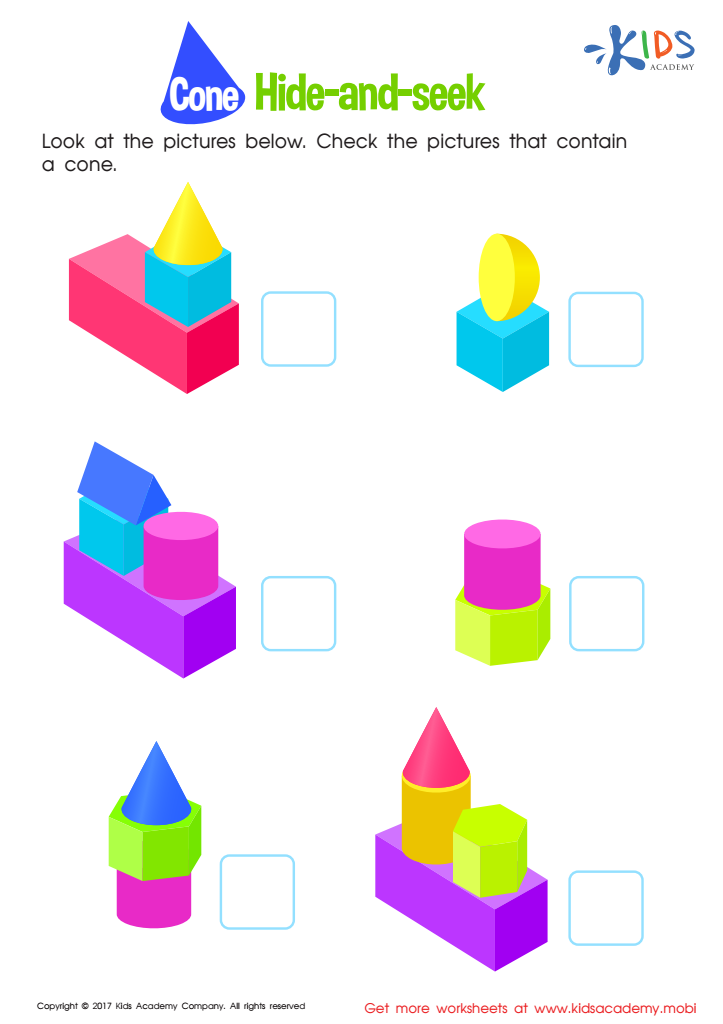

Cone Hide-and-Seek Worksheet
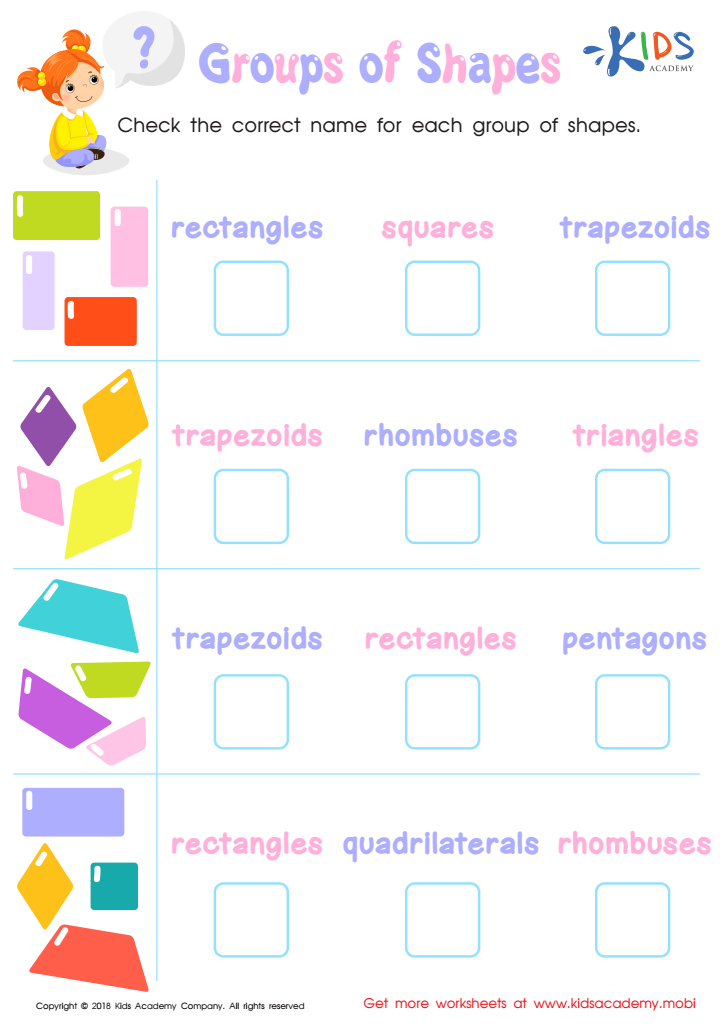

Groups of Shapes Worksheet
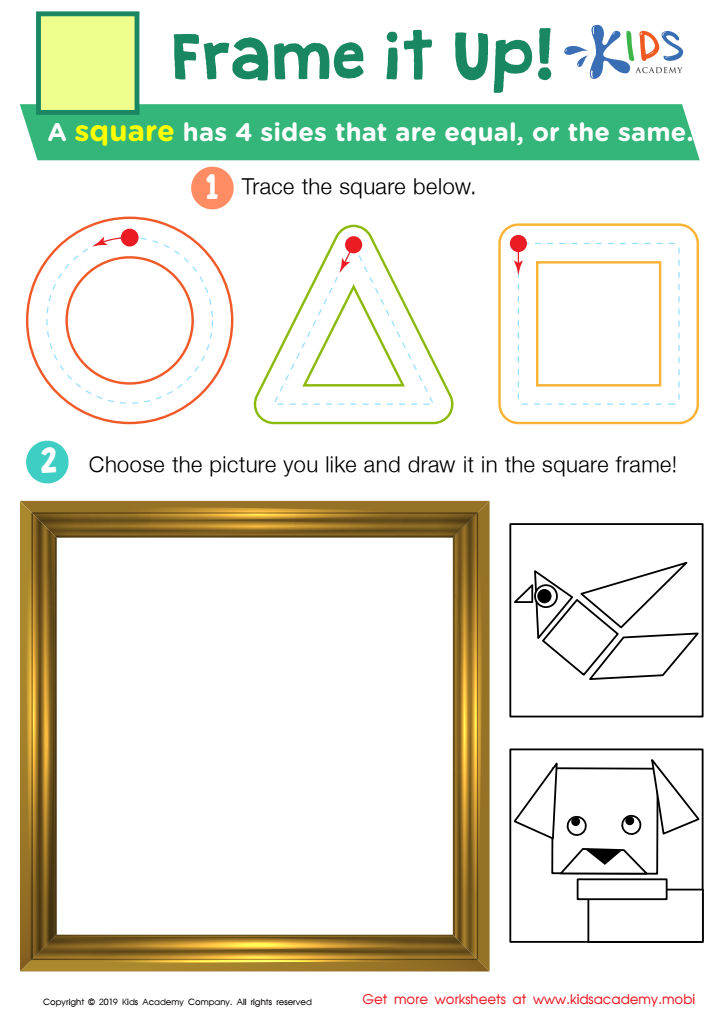

Frame it Up Worksheet
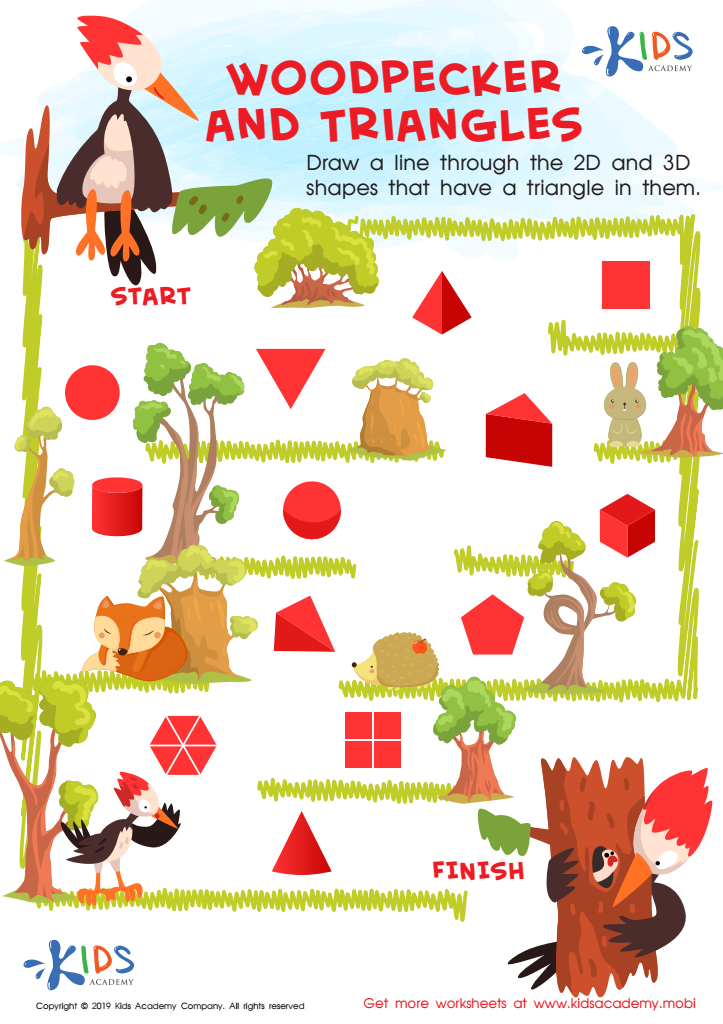

Woodpecker and Triangles Worksheet
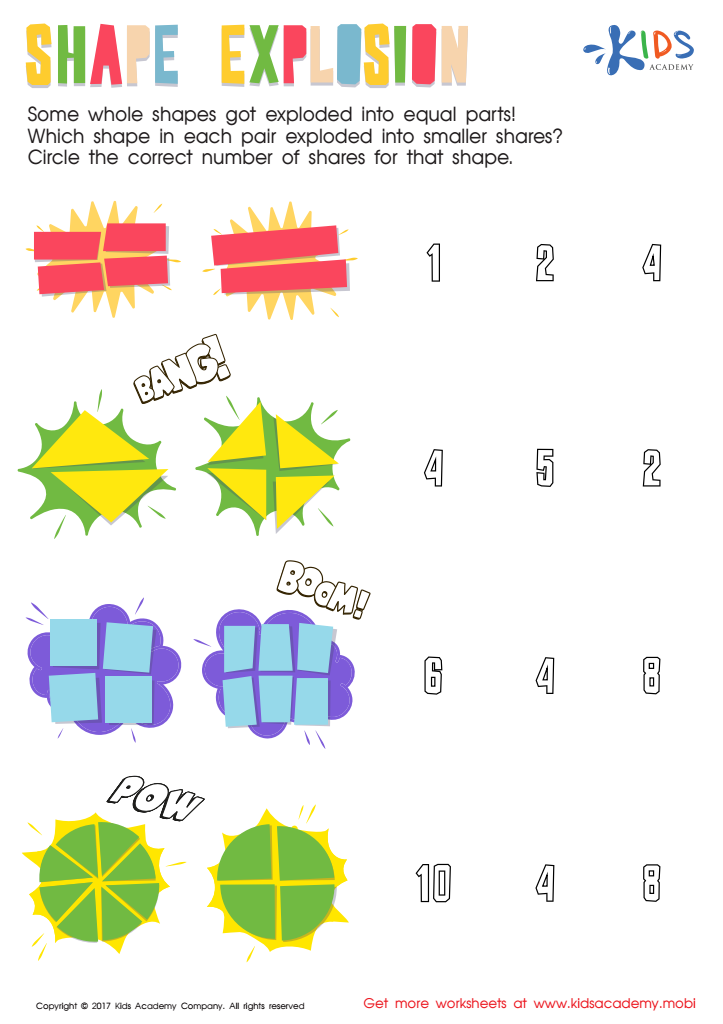

Shape Explosion Worksheet
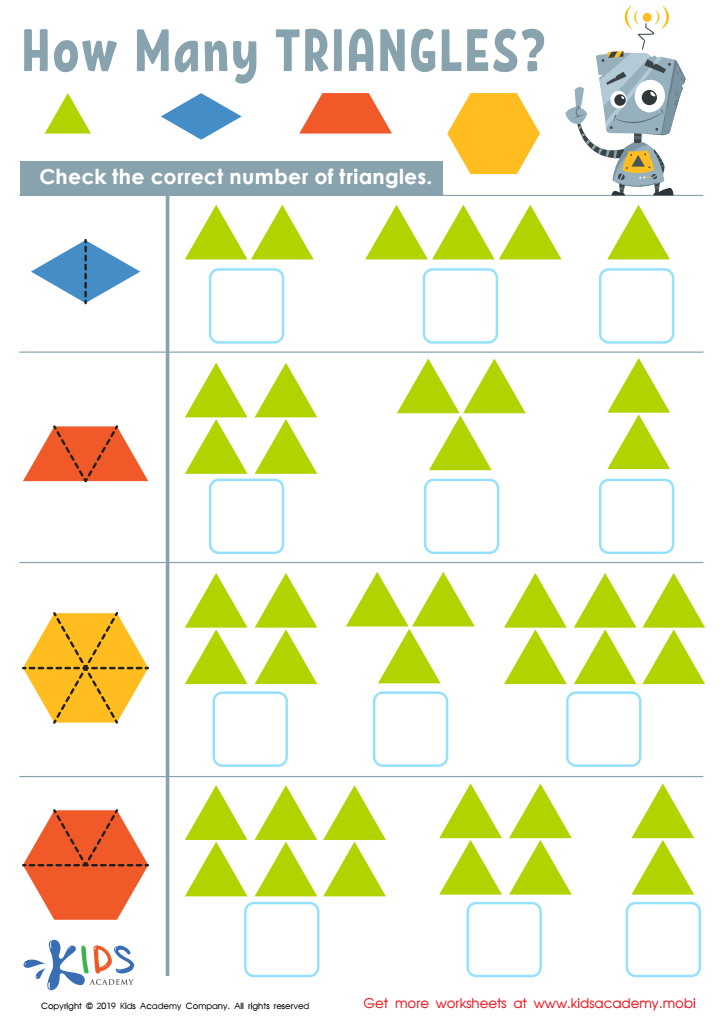

How Many Triangles Worksheet
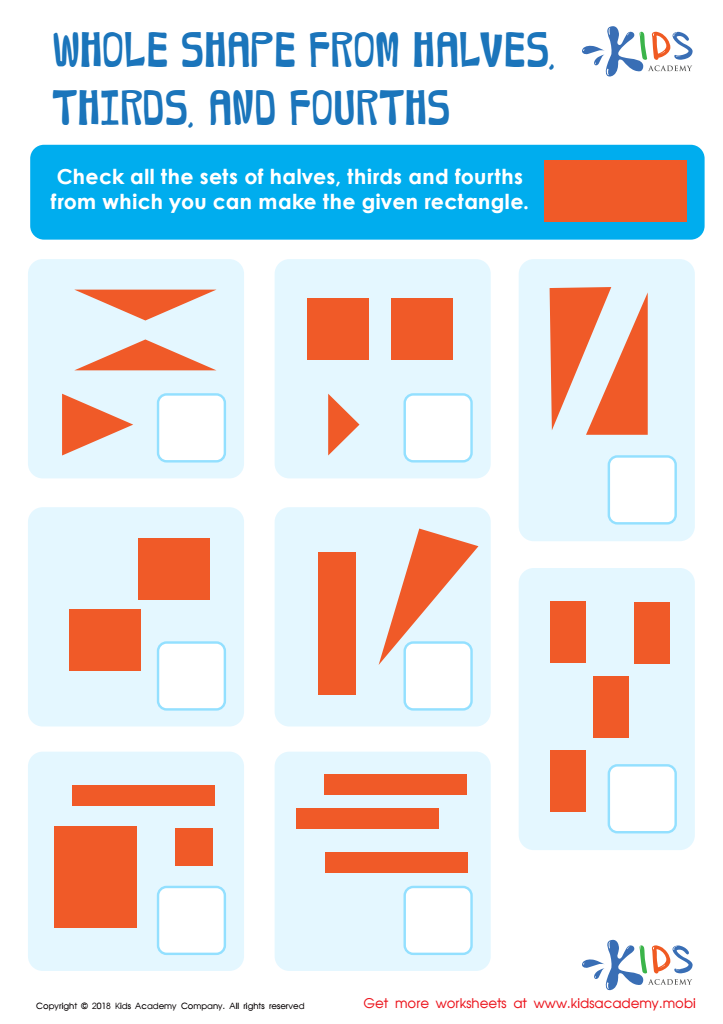

Whole Shape from Halves, Thirds and Fourths Worksheet
Counting skills and geometry are fundamental mathematical concepts that are critical for children aged 7-8. At this age, children are developing their cognitive abilities, and a solid understanding of these topics is essential for their academic growth.
Firstly, counting skills serve as the foundation for all future math learning. Mastery of basic counting helps children develop number sense, which is vital for more complex operations, such as addition, subtraction, and eventually multiplication and division. Enhanced counting skills also foster problem-solving and logical thinking, as children learn to manipulate and understand numbers in various contexts.
Geometry, on the other hand, introduces children to the shapes, sizes, and spatial relationships of objects around them. Early exposure to geometric concepts helps develop visualization skills, which are essential not only in math but also in arts and sciences. Understanding geometry enhances critical thinking as children learn to recognize patterns, analyze differences, and classify objects based on their attributes.
Ultimately, fostering counting skills and geometry in early education equips children with the necessary tools to approach more complex mathematical concepts in the future. By emphasizing these skills, parents and teachers can ensure that children feel confident and prepared for their continued learning journey.
 Assign to My Students
Assign to My Students



























